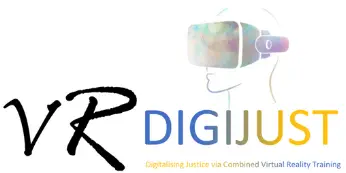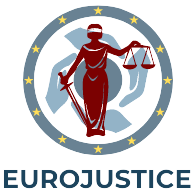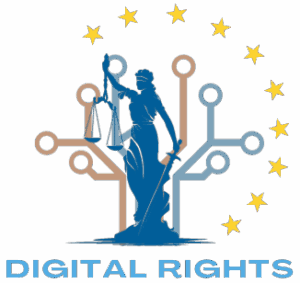VR-DigiJust aims to enhance the coherent and effective application of key EU judicial cooperation instruments at the regional level, through an innovative, cross-professional and cross-border training strategy that leverages digital and immersive learning tools. In line with the Council Conclusions 6926/21 on boosting training for justice professionals, the project targets prosecutors, judges, lawyers, bailiffs, and court staff, particularly those involved in complex, poly-crime investigations involving digital evidence, such as in the EncroChat, Sky ECC, or Slovak-UK modern slavery cases.
The project addresses the challenges posed by the increasing reliance on digital data and cross-border collaboration in transnational investigations. It seeks to modernise EU judicial training systems and foster a harmonised and rights-based use of mutual recognition instruments in day-to-day practice by regional justice actors.
VR-DigiJust supports the operationalisation and harmonised interpretation of:
- Council Regulation (EU) 2018/1805 on asset freezing/confiscation
- Framework Decision 2002/584/JHA on the European Arrest Warrant (EAW)
- Directive 2014/41/EU on the European Investigation Order (EIO)
- Regulation (EU) 2017/1939 establishing the European Public Prosecutor’s Office (EPPO)
- GDPR (Reg. 2016/679) and the Police Directive (2016/680)
- Framework Decisions on alternative measures to detention (2008/909, 829, 947)
These are addressed with reference to recent CJEU and ECtHR jurisprudence, particularly around the concepts of judicial authority, data protection, and prevention of ‘fishing expeditions’.
Target Groups:
The project engages regional judicial actors—prosecutors’ offices, preliminary, first- and second-instance tribunals—alongside lawyers, bailiffs, and court staff. It promotes a decentralised training approach that reflects the complexity of mutual recognition procedures and their practical deployment depending on jurisdiction, stage of proceedings, and nature of the offence.
VR-DigiJust responds to EU calls for justice training reform by:
- Reducing disparities across MSs through harmonised curriculum design
- Delivering blended learning via the HERMES platform
- Introducing Virtual Reality (VR) modules to simulate complex case scenarios
- Applying the Kirkpatrick model to assess training effectiveness and long-term impact
Expected Impact:
- Improved cross-border cooperation and evidence handling in complex digital investigations
- Enhanced regional-level capacity for applying EU cooperation tools in practice
- Increased uptake of VR and blended training methodologies across Member States
- Mainstreamed gender-sensitive justice training strategies
VR-DigiJust ensures EU-level impact through regional implementation, while advancing a technologically empowered, rights-based, and inclusive justice system in line with current legal and policy priorities.








